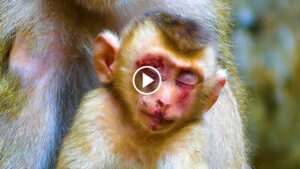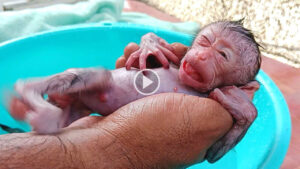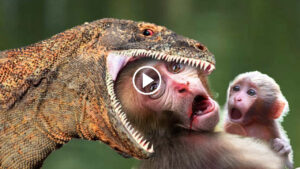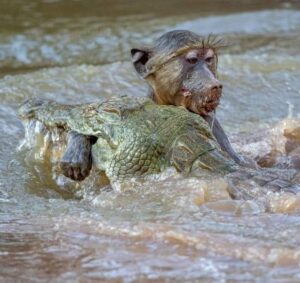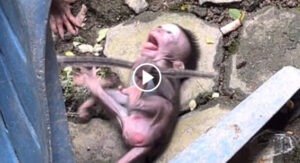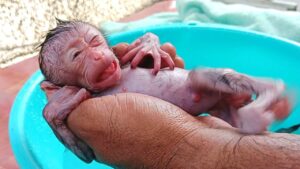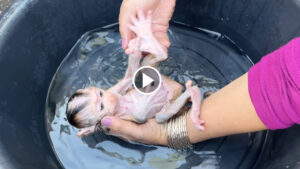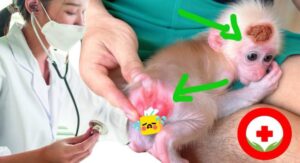Newborn baby monkeys, like many other young animals, sometimes require additional vitamins to ensure proper growth and development. This necessity arises from several factors, including nutritional needs, maternal health, and environmental conditions.
Firstly, newborn monkeys need a range of vitamins to support their rapid growth and development. Vitamins such as A, D, E, and K play critical roles in various physiological processes. Vitamin A is essential for vision and immune function, while Vitamin D is crucial for bone health and calcium absorption. Vitamin E acts as an antioxidant, protecting cells from damage, and Vitamin K is important for blood clotting and bone metabolism. Without adequate intake of these vitamins, baby monkeys could face deficiencies that might impair their growth or lead to health problems.
Secondly, the health and nutritional status of the mother can impact the vitamin needs of the newborn. If a mother monkey’s diet is deficient in certain vitamins, her milk might not provide all the necessary nutrients for her offspring. In such cases, supplementing the newborn’s diet with vitamins can help compensate for any deficiencies in the maternal diet. This is especially important in captive environments, where the diet of both the mother and the newborn can be more controlled and monitored.
Furthermore, environmental factors can also influence the vitamin needs of newborn monkeys. In the wild, baby monkeys might naturally obtain a balanced diet through a variety of foods. However, in captivity, their diet might lack diversity, leading to potential vitamin deficiencies. Additionally, factors such as limited sunlight exposure can affect Vitamin D synthesis, making supplementation necessary.
In conclusion, the administration of vitamins to newborn baby monkeys is a proactive measure to ensure they receive all the essential nutrients required for their healthy growth and development. By addressing potential dietary deficiencies, particularly in captive settings, caregivers can help support the overall well-being of these young animals, promoting their long-term health and vitality.
